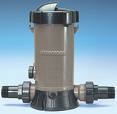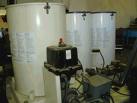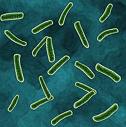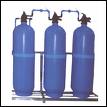



Purpose Of Sedimentation
Sedimentation is a unit operation to settle out the suspended particles and flocs in water. Sedimentation water treatment is achieved by lowering the velocity of the water below...

Coagulation and Flocculation
Types of Suspended Particles in WATER
There are three types of particles which can be found in water in suspension and cause turbidity. In the order from smallest to largest, these particles are chemicals in...

Test for Residual Chlorine
Water Analysis for Chlorine
The amount of residual chlorine left in the chlorinated water after the required contact period, can be experimentally determined by using any of the following tests:
Orthotolidine...

Chlorine Room
Safety Require for Water Treatment Plant Chlorine Cylinder Room.
Chlorine house should have to following features:
The chlorine cylinders and feeders should be housed in an isolated room from the Water...

CHLORINATORS
Hypochlorinators
The simplest method of continuous chlorination of water supply systems for a water flow of less than 200 Lpm is by the use of a hypochlorinator. Hypochlorinators are motor driven pumps which...

Cholorination
Water Chlorination
Chlorination is the application of chlorine to the water for the purpose of disinfection. But the chlorination can also be used for taste and odor control, iron and manganese removal, and to...

Chlorine as Disinfectant
Disinfectant
Chlorine (CL) gas is a greenish yellow in colour and about 2.5 times heavier than air. Liquid chlorine is amber coloured and about 1.44 times heavier than water. CL gas is moderately soluble in...

WHAT IS DISINFECTION ?
Disinfection is the process of selectively destroying or inactivating pathogenic organisms present in water, usually by chemical means. Disinfection aims in reducing the organisms in water to such low levels...

Advantages and Disadvantages of Water Softening
Advantages of water Softening are:
Water Softening will deal with the problems caused by hard water such as excessive soap use and scaling.
Depending on the type of water softening process used, softening may...

Ion Exchange Softener
Softener Water Treatment Process
The other method commonly used for water softening is ion exchange softening, also known as zeolite softening. shows below the ion exchange softener. Ion exchange softening...






 LIKE TO GET UPDATES
LIKE TO GET UPDATES  TO GET EXPERT GUIDE
TO GET EXPERT GUIDE